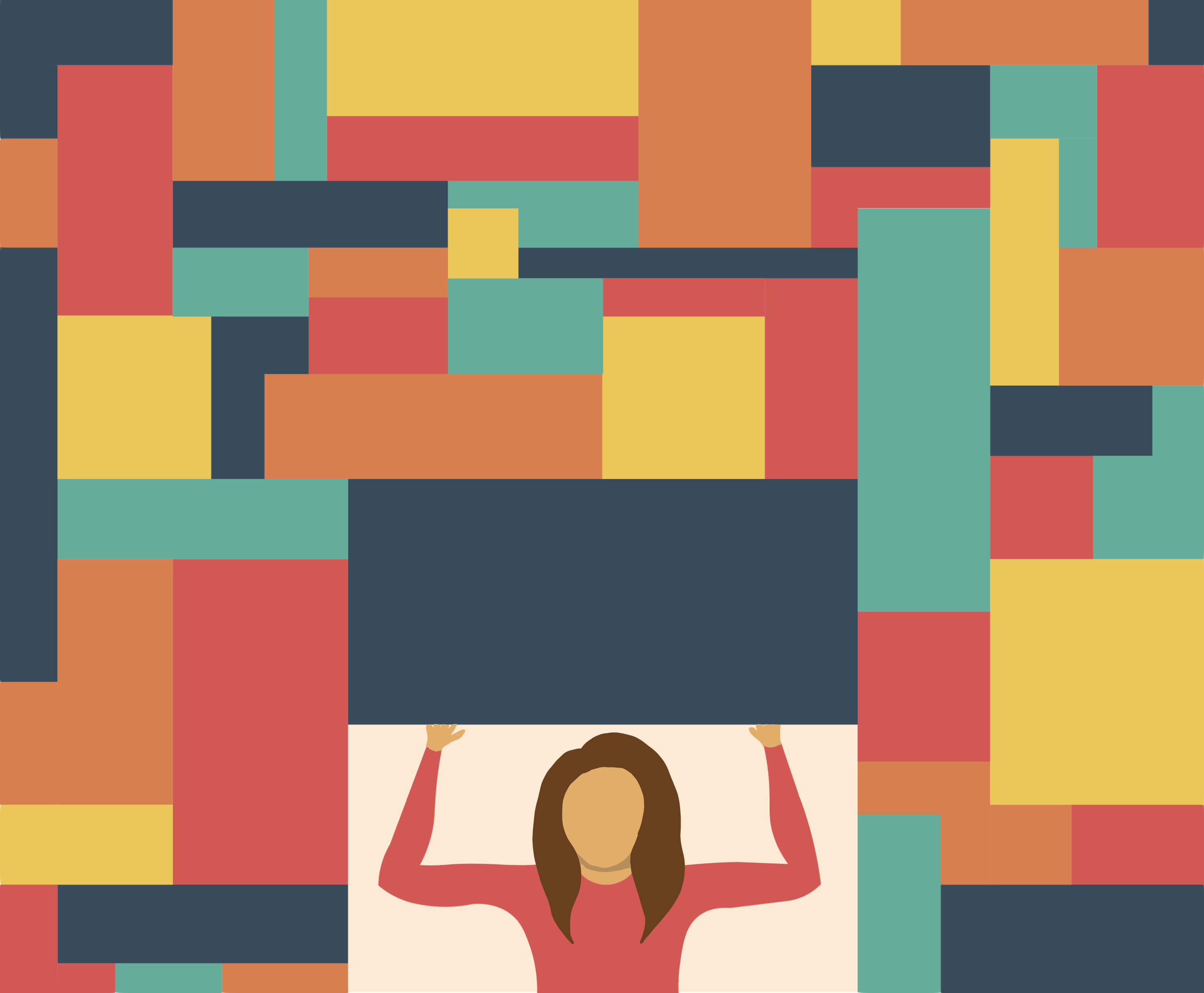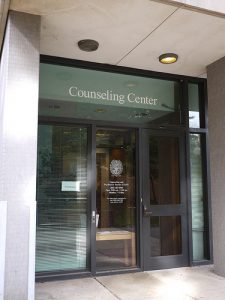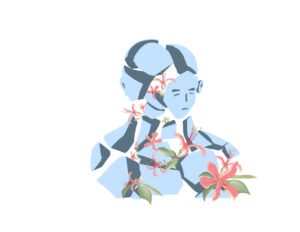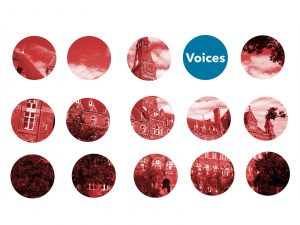I have OCD. But that’s only half of the problem.
Of course, a condition like Obsessive Compulsive Disorder—which causes obsessive and uncontrollable intrusive thoughts and urges—is, entirely on its own, enough of an issue to worry about. It’s not cute or quirky; it’s incredibly frustrating, sometimes debilitating, and can transform even the smallest action into nothing short of a battle. OCD doesn’t need any help being a problem.
But none of that would be quite so hard to bear if it weren’t for the fact that all of it is so goddamn impossible to explain.
I don’t mean neurologically—neuroscientific research can explain the underlying mechanisms well enough. No, what I mean is there’s almost no way to explain it from a personal perspective, the experience of having it. It’s such an integral part of my life, something I carry with me everywhere, and yet, despite all of my years writing, it defies description.
And that’s the other half of the problem.
This incomprehensibility would, of course, be frustrating enough if it only affected my ability to communicate my mental state with others. Being able to express yourself simply for the sake of being understood is essential, and just being deprived of the gratification of being understood by others would of itself be hard for me to deal with. But words are important for so much more than that, and this inability—especially during the many years before I had a diagnosis—to put the experience of my condition into words has not just shaped the way others see me, but the way I see myself.
See, I’ve known for as long as I can remember that something is wrong with me—the symptoms of OCD that I’ve always experienced couldn’t possibly have been right—the problem was that I had no way of knowing whether it was something also wrong with everyone else—whether, however uncomfortable it was, everyone else felt it too. The unpleasant urges I’ve felt my whole life always caused me discomfort, and there’s never been any doubt that ideal human functioning would be without them entirely. They were wrong, they were harmful; both the way others always responded to them and the way they themselves affected my life made that much clear to me early on. But without the linguistic tools to communicate about them, I had no way of knowing that they weren’t just a natural part of life.
After all, there are plenty of universal elements of the human experience—fingernails on a chalkboard, clicking your teeth on a metal fork, being unable to reach an itch—that are unpleasant without requiring diagnoses and medication. What made my intrusive thoughts so different from those? Unable to express what was happening in my head and thus equally unable to receive confirmation that others did or didn’t feel the same way, I was always left with that same unanswerable question: Why should I think I was special?
So, up against the fundamental inadequacy of language, unable to find evidence that what was wrong with me was either unique or treatable, I was left with the conclusion that, surely, everyone felt as I did. I simply assumed that my experience must have been the same as everyone else’s, with the difference being nothing more than that I was worse at covering it up. The fact that nobody else needed to pick things up using both hands perfectly symmetrically, or take even numbers of steps everywhere they went, didn’t mean that they didn’t feel the overwhelming urge to. Their willpower was simply superior to mine—they could resist where I couldn’t, I was lacking in some way.
And I hated it. I hated this perceived deficiency; I judged myself for my inability to do what everyone else could, was ashamed at the ease with which others accomplished feats that seemed so impossible to me. There were no words available for what I had, so to me, what I had was hardly anything at all.
Without the words to explain how I felt to others, nobody seemed willing to empathize with me. I was forced to let the symptoms speak for themselves—express what I felt compelled to do, what my obsessions were, without being able to explain why—and that never seemed to be enough for those from whom I sought understanding. Just as I always had, they assumed that nothing was wrong, that I was being dramatic and I needed to just let it go. Children have odd impulses, or get attached to ideas for no reason—that was all that was going on. My desire to step only on certain color tiles as I followed my parents through the grocery store was surely just too much commitment to a game that plenty of children played, and, the adults around me assumed, as I grew older I would learn to stop playing.
When I felt a compulsion that might have been awkward or unusual, no matter how benign it was or how little harm it caused, I was generally sent the message—implicit or explicitly—that I should shut it down and ignore it. No, Annette, it doesn’t matter that you handed something to me with only one hand; I’m using it and not going to pass it back to you so you can hold it with the other. Come on, Annette, don’t lag behind; there’s no reason you need to take that specific path across the patterned carpet. I was conditioned to think that I didn’t need to be kind with myself, that I shouldn’t accept that I had these obsessions and try to work through them; I was supposed to pretend they didn’t exist.
And then, last summer, I got my diagnosis. It helped. But it shouldn’t have had to.
According to what research I’ve done, OCD, though it can begin at any time, usually tends to manifest in children in one of two stages: between the ages of eight and 12, or young adults and older teens. Though I’m not sure that quite characterizes my experience—after all, I’ve experienced symptoms of OCD for as long as I can remember—it’s certainly true that, in the past year or so, fitting right into the predicted older teen group, its severity has increased. All at once, what had formerly been an annoyance—a source of occasional pain but more often simple frustration—began to intrude upon every element of my life.
Just a few months into my 19th year, the annoyances and distractions I had experienced my whole life escalated into something more. I stopped kayaking—something I had previously done nearly every day in the summers—since I couldn’t bear the asymmetrical way the water drops landed on my legs. I couldn’t go near my dog, as his swinging tail was likely to brush against me in a way I couldn’t control. Going through doorways became a source of stress, chewing food was a battle, and one time I even cried because I couldn’t get the air from my bedroom’s fan to blow on both sides of my body the same way. I cut myself shaving once; when the razor skidded across one leg accidentally and I knew that, despite the blood it was sure to draw, I had to do the same on the other. At this point, it was pretty clear that there really was something different about the way my brain worked. Or at least, there had better be.
So I scheduled a doctor’s visit—online, due to the pandemic—and showed up, nervous in case the psychiatrist on the other end told me that in fact nothing was wrong, reinforcing all of my self-judgement with official medical confirmation. But, by the time the visit was over, it was official: I had OCD.
And it felt great. Right away, from the moment she said, seeming impossibly casual given how important the words were to me, that yes, what I was describing did sound like OCD, everything felt better. Nothing physiologically had changed: I still had all of the same compulsions I’d always had, but I finally had a term for it. My pain was validated, and all those people who had told me to just ignore it had been proven wrong. It wasn’t “no big deal;” I wasn’t just some annoying kid who got stuck on an idea and refused to let it go. I had a mental disorder, and had just received the official diagnostic confirmation that I was, in fact, experiencing something real.
But in many ways, that, too, is ridiculous. Of course I was experiencing something real. The simple fact that I was experiencing it should have been proof of that. Why should I need anything, let alone a doctor’s note, to validate to myself something I knew I felt? It didn’t make sense, and I knew it didn’t make sense, but I felt the reverberations nonetheless. Just experiencing something wasn’t enough: I needed proof.
This feeling, I think, can be chalked up to the broader trend of delegitimizing mental health concerns in general. Of course, it’s vital that we as a society learn to respect mental health and understand that diagnoses for mental health conditions are just as legitimate as their physical equivalents—after all, it’s still common for people to ask why others can’t simply “choose not to be depressed”—but there’s more to it than that. I’ve always been around people who respect mental health, who understand that the simple fact that something is “all in your head” doesn’t make it any less real. And even so, until I got that diagnosis, until I had those three simple letters to neatly spell out that something really was wrong with me, there was never a sense that what I was experiencing could be anything more than a mild quirk.
In presenting mental health conditions to the world, the official doctor’s say-so is all that matters—in a way that never seems to happen with physical health. Though a doctor’s note proclaiming that a leg has been broken or a temperature of 100 degrees has been registered is helpful, they’re hardly necessary for others to understand that something is wrong. There’s no need to explain why or how; a complaint of soreness or ache is enough to elicit sympathy. And that’s just never been the case for me and my OCD.
For me, now that I do have my diagnosis, the situation has changed. After the first few months of experimenting with different dosages, I’ve found medical means of keeping my OCD symptoms to manageable levels. I’ve grown used to identifying with the condition, with no longer considering myself perfectly mentally healthy, with destroying the idea of the spitting image of mental health that I had always assumed I was. With my diagnosis, it’s easy for me to tell the world what’s wrong, and while the lack of words for the actual experience of OCD is still frustrating, it no longer has such a broad impact on my life.
But there are a lot of people out there who aren’t doing as well—who don’t have access to the words I’ve finally found. A lot of people have yet to receive their rightful diagnoses; there are at least as many who never will. And all of them are in that same limbo I was in a year ago, and my whole life before that. I’m hardly the first person to call on others to have more respect for mental illness, but that doesn’t make it less crucial. Even without a prescription to handily show the world that there Really Is Something Wrong, everyone deserves to have their troubles taken seriously, regardless of whether they’re visible to others. If people had just accepted my condition as legitimate earlier on in my life, all that shame and sadness would have been avoided. If people had validated my issues from the start, my OCD would have so much less control over me than it does right now. I could have spoken to professionals earlier, treatment could have begun years ago, and—perhaps most importantly—all the shame and guilt about falling short due to what I perceived to be a universal occurrence would have been avoided. It’s a problem, but it’s a problem that could have been prevented, and one that can be fixed going forward with just a little bit more empathy, even for conditions there seem to be no words to help you understand.
So, yeah, having OCD itself is only one half of the problem.
But, with just a little more understanding that mental health conditions, diagnosed or otherwise, are just as real as physical ones, it doesn’t have to be.





